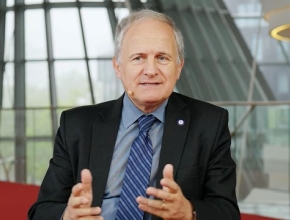Is Helicobacter pylori infection associated with a high risk of transmission to other persons or reinfection after successful treatment? Should family members of the patients be screened for H pylori infection?
Paul Moayyedi: This is an unfortunate message that you might get from the Maastricht guidelines that this infectious disease is easy to spread. It is not. H pylori only exists in humans, so it is, clearly, human-to-human transmission, but it is also almost exclusively transmitted in childhood. If, as an adult, you will find the infection and successfully treat it, the chances of you getting reinfected are extremely small. Most cases of apparent reinfection are just recrudescence of the original infection, because even though at one month your breath test is negative, there is still a small amount of that infection that recrudesces over time.
Of course, there are very rare occasions where adults do get H pylori but it is extremely rare. Though once you have successful eradication, there is no need to retest. And just as a sidebar: Serology is not a good retest because it will remain positive. You can only use the breath test noninvasively.
The other thing is, should you look at family members? Outside the population screening I would say no, because if you are looking at your spouse, as I said, it is very unlikely that they would have got the infection, and even children—first of all, in childhood it rarely causes a problem, so you might as well wait till they are adults. Secondly, the main way children get it is through each other, so yes, you can get transmission, particularly from mother to child, but that is not the commonest mode of transmission. The commonest mode is from child to child. This is an infection most of us have acquired in childhood through other children, so whole family screening will not help that.
 English
English
 Español
Español
 українська
українська











